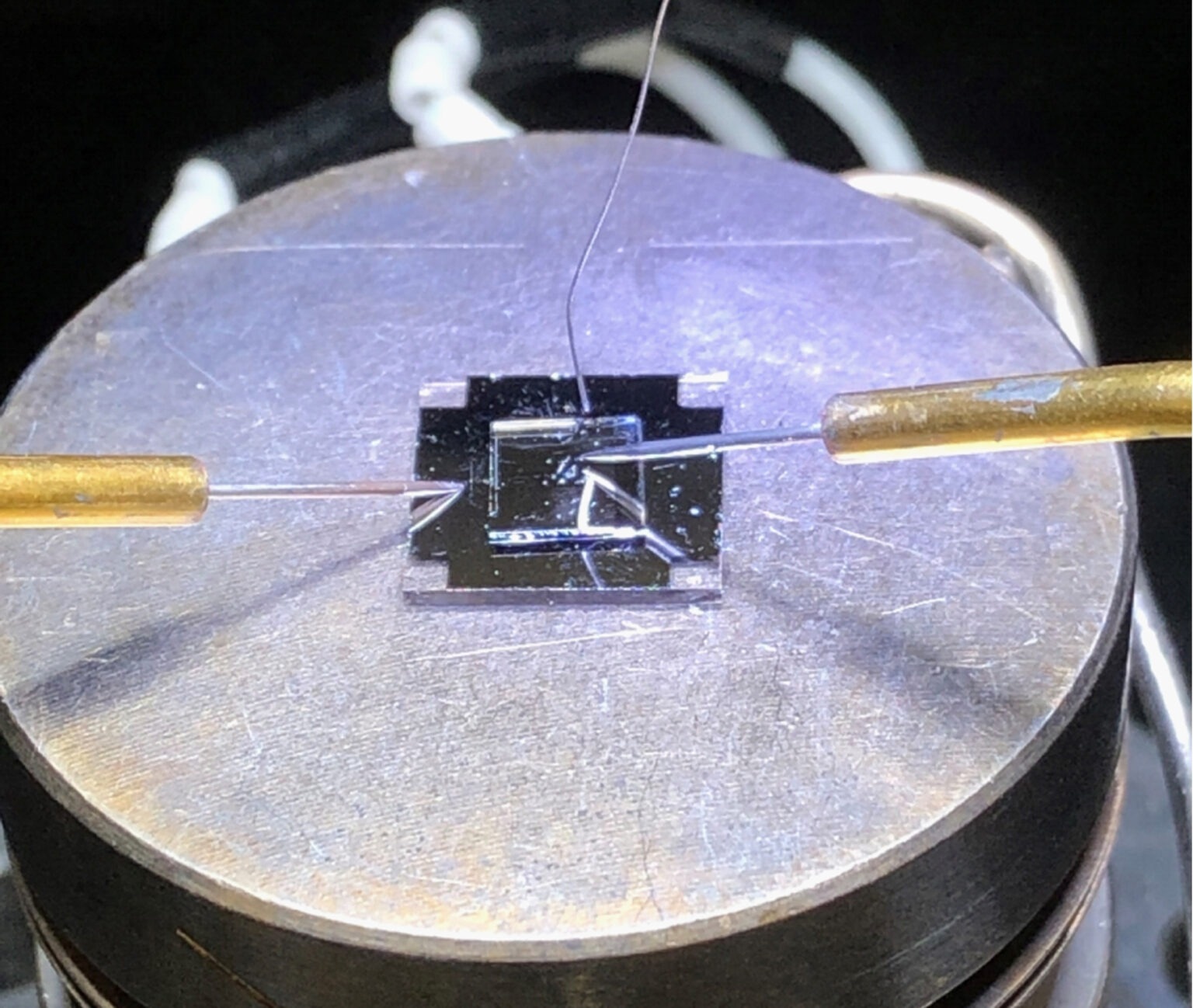A new era in thermal management technology has started with the development of an effective, stable solid-state electrochemical thermal transistor.

The pioneering solid-state electrochemical thermal transistor developed in this study. Image Credit: Hiromichi Ohta
Modern electronics generate a large amount of heat as waste during use, which is why devices like laptops and mobile phones become warm and need cooling solutions. The idea of managing this heat with electricity has been tested in the last decade, enabling the development of electrochemical thermal transistors—instruments that can regulate heat flow with electrical signals.
Liquid-state thermal transistors are presently in use, but they have severe drawbacks—leakage causes the device to stop working.
Hokkaido University’s Research Institute for Electronic Science, led by Professor Hiromichi Ohta, has established the first solid-state electrochemical thermal transistor. Their invention, which was published in the journal Advanced Functional Materials, is far more stable and reliable than current liquid-state thermal transistors.
A thermal transistor consists broadly of two materials, the active material, and the switching material. The active material has changeable thermal conductivity (κ), and the switching material is used to control the thermal conductivity of the active material.
Hiromichi Ohta, Professor, Hokkaido University
The thermal transistor was built on a yttrium oxide-stabilized zirconium oxide base, which also served as the switching material and strontium cobalt oxide as the active material. Platinum electrodes were used to provide the necessary power to control the transistor.
In the “on” state, the thermal conductivity of the active material was equivalent to that of some liquid-state thermal transistors. The thermal conductivity of the active material was four times higher in the “on” state than in the “off” state in general.
Furthermore, the transistor was more stable than some current liquid-state thermal transistors after 10 use cycles. This behavior was tested across more than 20 independently fabricated thermal transistors to ensure reproducibility. The only disadvantage was that the operating temperature was around 300 °C.
Our findings show that solid-state electrochemical thermal transistors have the potential to be just as effective as liquid-state electrochemical thermal transistors, with none of their limitations. The main hurdle to developing practical thermal transistors is the high resistance of the switching material, and hence a high operating temperature. This will be the focus of our future research.
Hiromichi Ohta, Professor, Hokkaido University
The Japan Society for the Promotion of Science (JSPS) Grants-in-Aid for Scientific Research A (22H00253) and Innovative Areas (19H05791, 19H05788) and Grant-in-Aid for JSPS Fellows (21J10042); the Crossover Alliance to Create the Future with People, Intelligence and Materials; the Network Joint Research Center for Materials and Devices funded the study.
The research was also supported by the Japan Ministry of Education, Culture, Sports, Science and Technology’s (MEXT) Advanced Research Infrastructure for Materials and Nanotechnology Japan (Grant Number JPMXP1222UT0055); and a Hokkaido University DX Doctoral Fellowship.
Journal Reference
Yang, Q., et al. (2023) Solid-State Electrochemical Thermal Transistors. Advanced Functional Materials. doi.org/10.1002/adfm.202214939.